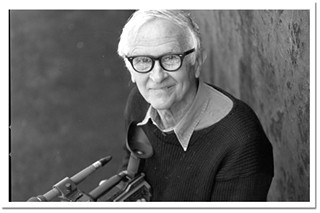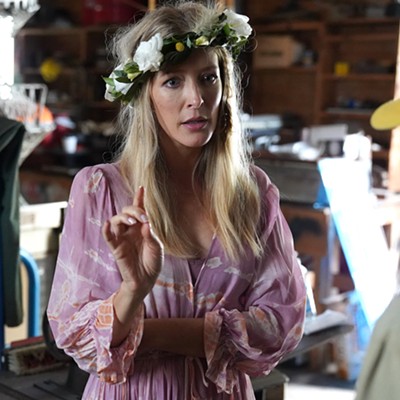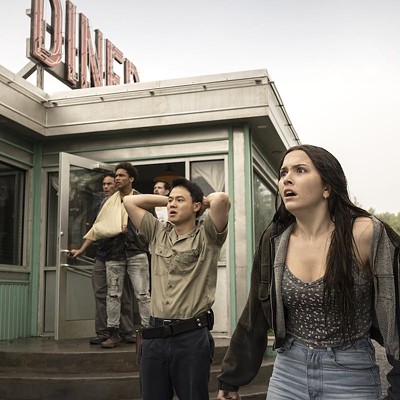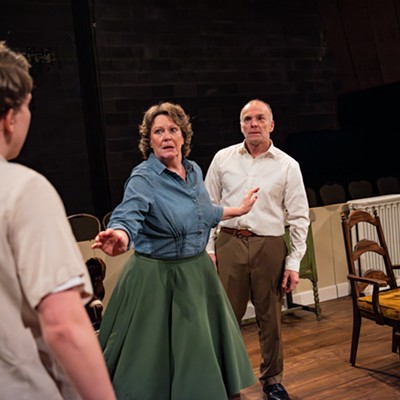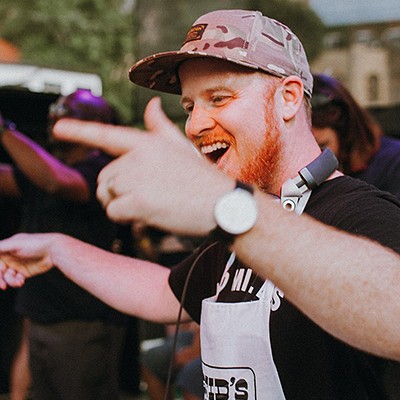Pick one defining connection between Albert Maysles' documentaries from the last 50 years, and it would be their astonishingly vulnerable moments. There's Little Edie Beale's bizarre and flirtatious dervish dance down the hallway of her decaying East Hampton mansion in Grey Gardens. Mick Jagger's mildly fearful gaze while watching footage of a murder at The Rolling Stones' Altamont concert, in the era-defining concert film, Gimme Shelter.
It's not surprising that a former psychology professor understands what makes us tick, but at the heart of one of the godfathers of American direct cinema, or cinema verite, is a simple lesson from his mom: "Love everyone." While this would sound trite coming from Michael Moore, this sincere mantra propelled Maysles—and his brother and collaborator, David, who passed away in 1987—to the forefront of non-fiction feature filmmaking, and into the lives of some of the biggest personalities of the last century, including Orson Welles, Marlon Brando, Truman Capote, John F. Kennedy, The Beatles and Muhammad Ali.
"There's a thing every good therapist knows," says Maysles, on the phone from his Lenox Avenue office in New York. "And that is to use the gaze. I trust the opportunity to do something good, to film someone in a loving fashion. I feel that in my heart and that is expressed in my eyes. They can pick up on that, and from then on, it's a continuation of that empathy process. If you empathize with people, then you get to understand them, if you try to understand them, you empathize—it goes like this, back and forth in a really helpful fashion."
Although the Maysles brothers are often cited for their famous subjects, he explains that celebrity status is of secondary importance to the story's emotional core. "In the films I make about these famous people, they come across as being quite human and in your home or their home." In fact, looking through the film catalogue, the filmmaker takes a democratic and truthful approach to all his subjects, whether it's a desperately impoverished Mississippi family or he is at the bedside of a terminally ill hospice patient.
"I want to understand more fully a person and find someone who I can empathize with. That might be someone that I have a disposition towards disliking, but, still, my mother used to say there is good in everybody," says Maysles. "If I were somehow called upon to make a film about Mr. Bush—who I have a strong aversion to—I would welcome the opportunity to film him, and through empathising, understand him better."
In 1955, Albert dropped a teaching gig at Boston University for a 16mm camera today, he espouses the benefits of a Sony PD170 camcorder), which the two brothers took to Russia to document patients in mental hospitals. The technical revolution and portability of 1960s cameras made it easier to unobtrusively follow subjects, and a 1966 documentary about author Truman Capote, filmed shortly after he wrote the non-fiction novel In Cold Blood, inspired the brothers to "experiment with film the way that Capote experimented with literature." The result, Salesman, which follows the lives of four door-to-door Bible salesmen, is considered an American cinema classic.
Now 80, Maysles shows no signs of slowing down. The philanthropic Maysles Institute teaches filmmaking to the children of incarcerated parents. A few weeks ago he shot live concerts for Sean Lennon and Rufus Wainwright, who is a huge Grey Gardens fan. He's looking for financing for In Transit, a documentary for which Maysles travelled through six countries by train to find compelling stories such as a woman on her way to Phildelphia to see her mother for the first time in 22 years, and two children on their way to live with an aunt in the Ukraine, after their mother was brutally murdered by their father.
"I'm there to observe and to build up a rapport with people. And some people would say, "Oh Maysles, he's great. He's just like a fly on the wall.' It's not that. A fly on the wall doesn't have any sensitivities or intelligence. You're connecting with people but not in an attempt to change anything about them."
Gimme Shelter screening w/Albert Maysles interview, September 17 at Park Lane 4, 7:10pm, $10, 422-6965, .
Give Sue Carter Flinn a scarf and she might perform Little Edie's American flag dance for you.

